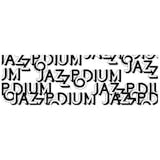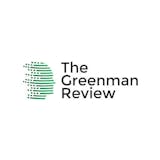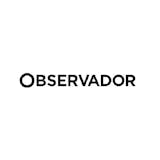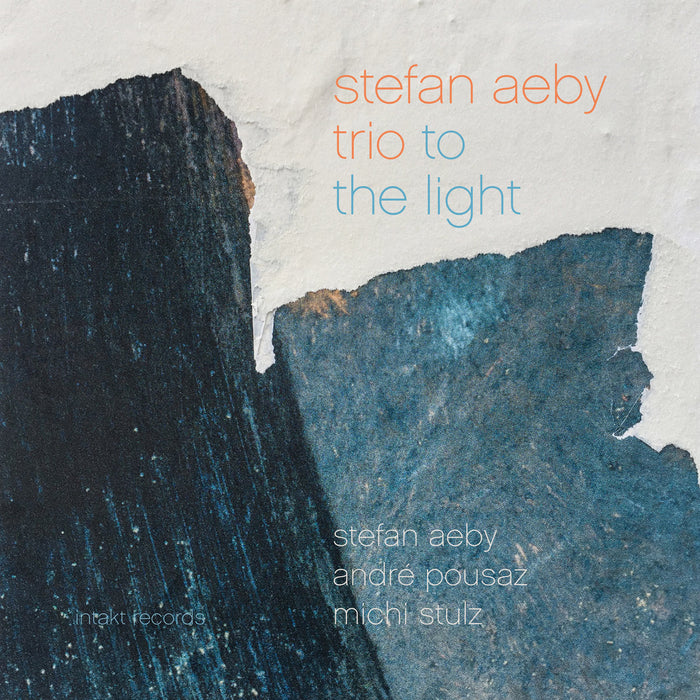
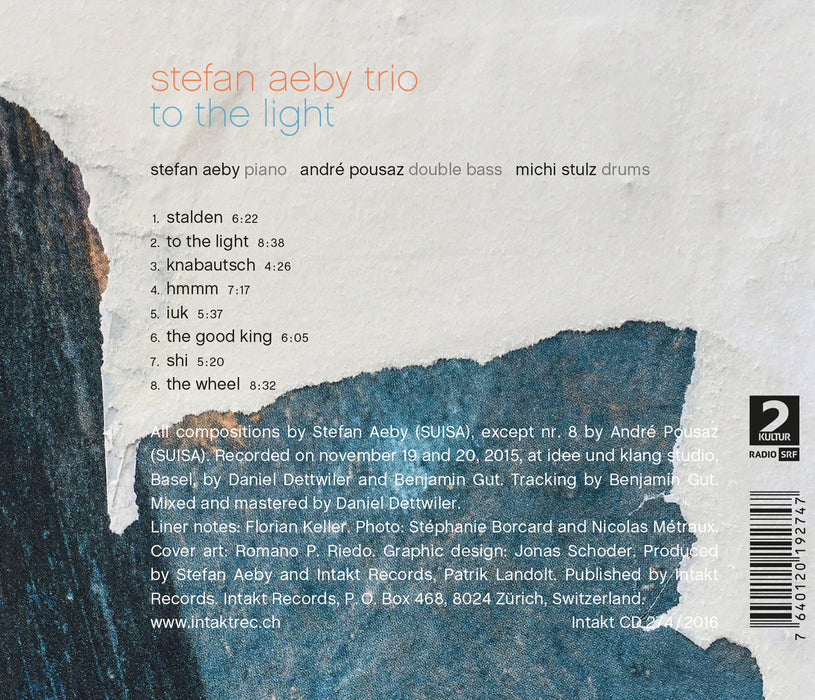
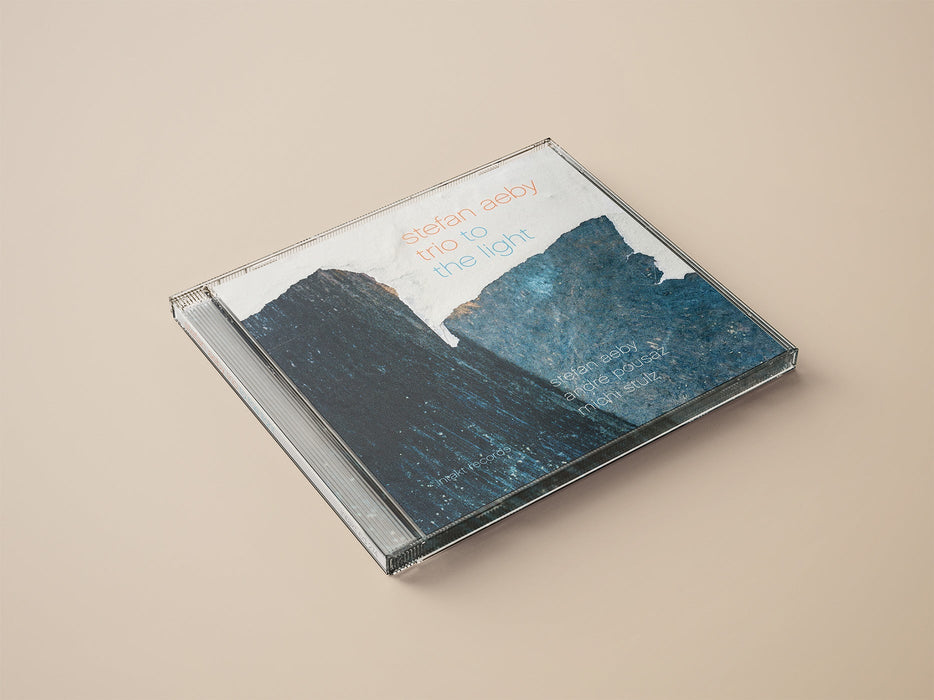
274: STEFAN AEBY TRIO. To the light
Intakt Recording #274/ 2016
Stefan Aeby : Piano
André Pousaz: Bass
Michi Stulz: Drums
Recorded on november 19 and 20, 2015, at Idee und Klang Studio, Basel.
More Info
Acclaimed Swiss pianist and composer Stefan Aeby presents with his trio his debut on Intakt Records as a bandleader. His excellent new album "to the light" with bass player André Pousaz and drummer Michi Stulz has a clear, unique identity. The trio follows a free vision of minimal sound art, leaving space and time to react to each other, and to revel in the sounds. Florian Keller writes in the liner notes: "To build their multi-layered sound architecture, these three music fanatics avoid the weight of the monumental, instead using their atmospheric musicianship to create a soundtrack for the poetry of the unobtrusive. The magic of this expansive music lies in a courageous aesthetic of modesty, which favours fine-fingered sensitivity over the muscular gestures of musical high-performance sport, and thus a statement against the thundering excesses of spectacle. Yet this graceful sonic art is indeed spectacular in its filigree way. Unpretentiously, the trio have cultivated a kind of gallant tiptoe. The principle is to play softly and generate tension walking on velvet paws. This urgent ensemble music often creates its magic through a calmness bordering on silence."
Album Credits
Cover art: Romano P. Riedo
Graphic design: Jonas schoder
Liner notes: Florian Keller
Photo: Stéphanie Borcard and Nicolas Métraux
All compositions by stefan aeby (sUisa), except nr. 8 by andré Pousaz (sUisa). Recorded on november 19 and 20, 2015, at Idee und Klang Studio, Basel, by Daniel Dettwiler and Benjamin Gut. Tracking by Benjamin Gut. Mixed and mastered by Daniel Dettwiler.
Wer hat den Jazz erfunden? Nicht wir
Am Jazzfestival Schaffhausen treten Schweizer Musiker auf. Ihre Konzerte klingen international
Harte Cluster krachen von der Bühne sowie verzerrte Akkorde. Mit unbändiger Wucht schlagen Stöcke auf metallisches und hölzernes Zeugs. Aus fetten Bass-Saiten werden kantige Grooves gerissen. Und über die E-Gitarre, die manchmal auch auf Perkussion macht, entladen sich gestaute Gewitter rebellischer Generationen.
Wer sich in der beschaulichen Schaffhauser Altstadt auf das Jazzfestival im Kulturzentrum Kammgarn eingestimmt hat, kann am Freitagabend ein bluesig-blaues Wunder erleben. So ist das eben mit Jazz: Wenn er irgendwo aufspielt, nimmt er gleich den Raum in Beschlag, um über die Umgebung seine ganz eigene, schallende Wirklichkeit zu drücken. Und so gibt es am Schaffhauser Festival des Schweizers keinen verjazzten Psalm, keine keinen Rhein-Walzer, keine Munot-Fanfaren.
Physisches Engagement
Begleitet vom Kontrabassisten Raffaele Bossard und vom Drummer Lionel Friedli, pumpt der Gitarrist Dave Gisler vielmehr gärenden Blues, Jazz und Rock aus alten Schläuchen nein. nicht in neue. Inspiriert von Gitarren- Heroen wie Jimi Hendrix und Bill Fri- sell, lässt er die jahrzehntelang gereiften Substanzen in der Offenheit der Improvisation aufkochen. Die drei Musiker legen so viel Können und so viel physisches Engagement in ihr Zusammenspiel, dass aus ihrem erschütternden Sound Schweiss und Tränen zu tropfen scheinen. Dann wiederum nehmen sie Tempo heraus und lassen die Gitarre singen. Die effekt- und kontrastreiche Performance scheint allerdings nicht immer durch expressive Dringlichkeit motiviert. Manchmal wirkt das Pathos <>> rasch an Kontraste gewöhnen. Auf
Dave Gislers lautstarke Gitarristik folgt nämlich das Raffinement des Pianisten Stefan Aeby. Zusammen mit André Pousaz am Bass und dem Schlagzeuger Michi Stulz kultiviert er einerseits den schönen Einzelklang bis in die letzten Vibrationen. Andrerseits setzt er auf Steigerungen und auf weite melodramatische Verstrickungen. Es ist eine Freude, wenn sich im stillen Wasser des Rubato allmählich Leben regt, Konflikte entstehen und Spannung, die die Musik in ein fernes Finale lenkt. Noch mehr Erfolg haben die drei sensiblen Virtuosen mit ihrem im besten Sinne gefälligen Spiel, wenn die Temperaturen dank Ostinati langsam ins expressive Fieber steigen, bis man dann << und <
Klanggewitter und zärtliche Intensität
Vor einem Jahr waren der Pianist Stefan Aeby und der Gitarrist Dave Gisler Sidemen von Christoph Irniger bei «Pilgrim». Dieses Jahr kamen die beiden als Leader ihrer eigenen Trios und räumten bravourös ab.
SCHAFFHAUSEN. Paff! Das war er, der elektrisierende Beginn. Kein Wunder, denn wenn Lionel Friedli an den Trommeln sitzt, wird zugepackt. Und auch Bassist Raffaele Bossard war mit viel Kraft bei der Sache. Das war auch nötig, denn der Elektrogitarrist Dave Gisler ist keiner, der Angst davor hat, sein Instrument zu berühren. Kurz: Da war keine Spur von Leimsieder-Jazz, wo es irgendwann mal leise Blubb macht, sondern man musste zuhören, hinhören. Was dieses Trio bot, war sehr inten- siv, sehr laut, sehr gut. Wilde Musik.
Das zweite Stück fing an mit einem Bass- solo. Es war von ruhigerer Machart, Gislers Hand führte einen Geigenbogen über die Saiten, und Drummer Friedli liess Schellen rasseln. Aber selbst jetzt in der Ruhe sind die innere Dynamik und die Spannung so gross, dass man denkt, es könne jederzeit alles explodieren. Den Musikern war anzusehen, dass es ihnen Spass macht. Sie trieben sich gegenseitig an, und es kam sogar zu einem kurzen Schlagzeugsolo von Lionel Friedli. Schon am Mittwoch waren Schlagzeugsoli aufgetaucht, ein Echo sozusagen vom letztjährigen Festival, wo die Trommler - auch mit Soloprogrammen - im Fokus gestanden haben.
Zurück zum Dave Gisler Trio. Das ganze Set klingt roh und frisch. Kein Wunder, ist es doch erst das fünfte Konzert, das die drei mit diesem Repertoire, das auf einer Intakt-CD mit dem Titel <>> mitgewirkt.
Nun also amtete Stefan Aeby das erste Mal als Leader. Aber sicher nicht das letzte Mal, denn es war sozusagen mit den Ohren zu greifen, dass es ihm in dieser Rolle und mit diesen Sidemen wohl ist. Dieses Trio machte grosse Freude, denn die Musik war von einer berührenden Subtilität. Nichts von betulich, sondern von einer nie verblassenden Intensität, ganz egal, ob man leise zur Sache ging oder ob man die Pferde galoppieren liess.
Ein Höhepunkt an diesem Festival
Stefan Aeby bestritt seinen siebten Auftritt am Schaffhauser Jazzfestival und den 25. mit seinem aktuellen Trio. Die Kompositionen waren lang, hatten Zeit, sich zu entwickeln, und immer wieder wurden die Musiker belohnt mit spontanem Applaus. Auch Michi Stulz steuerte übrigens ein Solo bei - überhaupt lief er ganz besonders zur Hochform auf.
Die drei passen hervorragend zusammen, sorgten gestern für einen Festivalhöhepunkt, und man darf sich wünschen, dass Aeby, Pousaz und Stulz zusammenbleiben. Sie spielten ganz einfach ein grossartiges Set. Abgeschlossen wurde dieses mit dem Titelstück ihrer aktuellen CD «To the Light». Um den geschlossenen Eindruck des Auftritts nicht zu brechen, verzichtete die Band auf eine Zugabe.
The music of Stefan Aeby (and in this case André Pousaz as well) has always been, for me, contemporary music not only with an audacious sense of experimentation, but also music with a feel for exotic tone colours and tart, folk-like rhythms. Pousaz and Michi Stulz home in on the improvisational element of Stefan Aeby’s music as if the pianist had them in mind as performers all along. This is a fine programme overall, then, much to be recommended; but in addition to the work of Stefan Aeby, do keep an ear out for the playi8ng of André Pousaz and Michi Stulz as well. Moreover, all three members of this trio are wily players and their strikingly maverick performances have something to teach about this endlessly fascinating music. Of so many highlights on this recording
“Knabautsch”, “Hmmm” and “Shi”, which are almost Zen-like and almost Taoist in nature, hint at the piquant atmosphere of this program.
https://jazzdagama.com/music/intakt-adventure-continues/3/
Arriva al terzo album il trio del pianista svizzero Stefan Aeby, adesso su etichetta Intakt e con un nuovo batterista, Michi Stulz, mentre al contrabbasso rimane André Pousaz. Le composizioni sono tutte originali, della penna di Aeby, a segnalare fin dal programma un progetto artistico orientato alla contemporaneità.
La formazione è pienamente paritetica e la cifra della musica molto "nordeuropea": tempi moderati, suoni curati e quasi mai dinamicamente spinti, liricità sospesa e irregolare, ma sempre presente in filigrana. Lo si percepisce fin dalle primissime battute, con l'archetto del contrabbasso che introduce sonorità basse del pianoforte, per una drammaticità poi accentuata dall'ingresso della batteria. Ma per tutta la prima traccia, "Stalden," le atmosfere cambiano ripetutamente in modo sottile così come gli stilemi dei tre musicisti, pur in un percepibile e coerente filo conduttore.
Si tratta di un aspetto caratteristico della formazione, che ritorna in molti dei brani successivi, come in "Hmmm," a lungo condotta dal contrabbasso archettato e che poi diviene un sospeso dialogo tra i tre strumenti; o nella title track "To the Light," ancora introdotta dall'archetto del contrabbasso e da percussioni di pianoforte e batteria, con piccoli interventi correttivi di elettronica e di oggettistica sul piano, a costruire sonorità evocative, sospese, ma non scontate e sempre prodotte con un'interazione tra i tre che emana un senso di libertà, per condurre a uno sviluppo lirico semplice ma narrativamente molto efficace. Una menzione particolare merita "Knabnautsch," atipico brano di variazioni cromatiche tutto basato sulla ritmica e sorretto da un pedale minimalista.
Assai apprezzabili i tre protagonisti: Aeby è sensibilissimo nel tocco, abile e opportuno nell'uso creativo della tastiera preparata, forse non originalissimo ma coinvolgente negli assolo; Pousaz è non solo efficacissimo sia con l'arco che al pizzicato (dove il suono è solido e potente, si ascolti esemplarmente la parte centrale della conclusiva "The Wheel"), ma anche sorprendente allorquando interviene sul suono con piccole ma significative distorsioni (per esempio in "Knabautsch"); Stulz, infine, entra con molto tatto in un contesto che fa della leggerezza dei suoni uno degli elementi caratterizzanti e sa intervenire anche in modo energico senza mai alternare gli equilibri.
Ottimo lavoro, forse non di immediato impatto a cagione dei tempi e delle dinamiche poco trascinanti, ma in realtà originale nei dettagli delle architetture e eccellentemente eseguito.
https://www.allaboutjazz.com/to-the-light-stefan-aeby-intakt-records-review-by-neri-pollastri
Le trio du pianiste Stefan Aeby pourrait être le trio de beaucoup d'autres pianistes: souci de la note juste, sobriété et application exemplaires; Stalden ouvre le CD et n'est pas là pour nous rassurer. La suite sera plus alléchante: les climats vont s'embrumer, la contrebasse dégorgera quelques lignes acides, la batterie tapissera des vallées savonneuses, le piano nous exposera quelque viscéral secret. Certaines plages (Knabautsch, luk, The Good King) se feront oublier (crispation rythmique, soli économes et peu inspirés-inspirants) tandis que d'autres (Hmmm, Shi, The Wheel) entretiendront le mystère, les larges espaces. Et c'est précisément celles-ci que l'on retiendra. A suivre donc..
ステファン・エビ(p) トリオは、 何度も関西に来ているトビ アス・プライシク (vln) カルテ ットの3人。今作は、これま でと比べて驚くほど音数が 減り、アンビエントやミニマ ル要素を含んだ、ピアノトリオとして新境地に到達した感があ る。録音が素晴らしく、一滴一滴、波紋のように広がる豊潤 なサウンドが美しい。
Insieme al titolo in oggetto, sarà il caso di considerare nel suo insieme la discografia del giovane pianista da Zurigo, articolata in tre uscite lungo circa un quinquennio: l’esordio con Are You…? (Unit, 2010) ne delineava una propensione partecipativa alle speculazioni sul piano-trio, caratterizzata da una certa obliquità espressiva, primariamente nell’eccentrica costruzione melodica; anch’esso graziato da una splendida grafica di copertina, il successivo Utopia (Ozella, 2013) conferiva maggior strutturazione alle concezioni del giovane solista, tratteggiate da un’attitudine vigile nel bilanciamento tra disciplina armonica ed espansione ritmica, tra maree crescenti e distillazioni estranianti entro un album che sembrava chiudere un ciclo stilistico.
Ciò in base da una certa svolta riscontrata all’ulteriore cambio di produzione, nell’entrée presso Intakt records (etichetta presso cui si era già prodotto come sideman d’eccellenza per la vocalist Sarah Buechi e soprattutto il quintetto Pilgrim di Christoph Irninger), con otto nuove tracce che ne segnano un’apparente presa di distanza da certi eccentrici, ma probabilmente più personali canoni espressivi, con un più netto accostamento a certe formule iterativo-modulari teorizzate e praticate da affermati confratelli (Vallon, Bärtsch, Plaistow e via dicendo), da cui si discosta non tanto nelle imbastiture ritmiche, di analogo carattere (Knabautsch, Iuk), quanto piuttosto nelle assai più espanse esplorazioni melodiche, per quanto apprezzabile in tracks di carattere ben differenziato, dall’introduttiva e scultorea Stalden alle eso/misteriche e notturne To the Light e Shi, dal paesaggismo interiore di sensibilità nordica in Hmmm (di grande centralità lirica nell’opera) alle solenni dilatazioni temporali della privata The Good King fino ai suggestivi flussi di memoria di The Wheel, di caldo raccoglimento e più libera cantabilità, così conformando un album tematicamente ampio.
Alla luce del confronto con le precedenti esperienze, i nuovi materiali non risuoneranno spersonalizzati, quanto e piuttosto diversamente assertivi, ad opera di un ispirato pianista ed un sensibile teorico che non teme di mutare le proprie rotte evolutive, nel conferire ulteriore e rinnovata forma alla linea creativa propria, di austero e personale fascino.
https://www.jazzconvention.net/2017/03/21/swiss-jazz-stefan-aeby-trio-to-the-light/
Beim Stefan Aeby Trio ist der Vergleich angebracht mit altem Wein in neuen Schläuchen. Kein Klaviertrio kann ad hoc für Furore sorgen, wenn es nicht über die Jahre gereift ist. Das Stefan Aeby Trio besteht seit 2002, zwar in leicht gewandelter Besetzung, doch über die letzten Jahre hin schon mit André Pousaz am Bass und Michi Stulz am Schlagzeug, nachzuhören auch auf Intakt Records, etwa in Bands von Saxophonist Christoph Irniger oder von der Sängerin Sarah Buechi, weiterhin in Quartetten von Daniel Schenker oder in Ochumare, der Big Band de Montreux oder in diversen Kleingruppen, selbst in zwei eigenen Trios auf anderen schweizerischen Labels. Was allerdings ihre neueste CD auf Intakt Records besonders heraushebt, ist die Fokussierung auf ihre ureigenen Eigenschaften, der fast exemplarischen Destillation ihres Könnens auf das Essentielle. Sie untermauern dies mit ihrer Spielweise: „leise spielen und auf Samtpfoten Spannung kreieren". Wie heißt es im Begleittext in den Liner Notes zu „To The Light": „In den vorwiegend langsamen Stücken (Eigenkompositionen) lassen sich die Musiker viel Zeit, um einen weiten Raum zu öffnen für die flächigen musikalischen Interaktionen. Ihre individuellen Instrumentalstimmen, in einem energetischen Interplay zu einem gemeinsamen Klangkörper amalgamiert, entwickelt seine Stimmungsbilder in weiten dynamischen Bögen". Reduktion statt Geschwätzigkeit, Ausdruck statt Theatralik. Interaktion statt Narzissmen. Exemplarisch schon im eröffnenden Titel „stalden": „Aus der brodelnden Stille eines fein-ziselierten gestrichenen Tons des Bassisten, einem sanften Glocken- und Beckenton des Schlagzeugers und einem dahingetupften, beharrlich wiederholten und zunehmend raumgreifenden Klavierakkord wird in einem dynamischen Crescendo ein opulenter Klangraum aufgebaut". Da spürt man geradezu körperlich die Kontraktion und Relaxation in feinsten Abstufungen, Empfindungen, die man nur spüren kann, wenn man sich dieser Musik ganz öffnet.
Swiss pianist Stefan Aeby and his trio's third outing, their first on the German label Intakt, is a largely low-key affair that, to me, reflects the current holding-its-breath mood of much of the Western world.
The Trio's Utopia was one of my favorite recordings of a couple of years ago, and stamped Aeby's style firmly in my consciousness. "Graceful sonic art" is the way Florian Keller describes that style in this album's liner notes, and it's an apt choice of words. The music is atmospheric and yet focused, often weighty in theme but light in execution.
This trio is truly an integrated unit, with bassist André Pousaz and drummer Michi Stulz contributing every bit as much to the performance as Aeby. To be sure, it's Aeby's name in the composition credits with the exception of one track, Stulz's album-ending "The Wheel," but the performances are as unitary as the deeds of the Trinity.
Pousaz in particular takes a role that is every bit as up-front as the pianist leader's. The title work "To The Light" for example, begins with a lengthy introductory section in which Pousaz's arco bass leads the way, as Aeby and Stulz create layers of rhythmic, pulsing noise on prepared piano and clattering cymbals. He takes the lead again in the intro to "Knabautsch," plucking a slinky, bluesy melody over the stuttering five-beat rhythm laid down by Aeby and Stulz. And he plays an impressively sustained arco drone behind Aeby's somber chording on the portentous opening track "Stalden."
The mood overall is pensive, occasionally somber, as reflected by tempos that are frequently slow and sometimes even slow down within a piece. "Hmmm" again features Pousaz on arco bass playing the questing melody as Aeby explores dark chordal structures and Pousaz flits across the cymbals and skins. Piano and bass twine a tentative line around each other on the vaguely Eastern "Shi," and play the bass line in unison on the lightly swinging "Iuk" as Stulz's brushes lay out Morse code on the snare, before the whole tune takes a long, slow fall down an ever-darker melodic hole from which you're never sure they'll return.
They do return, eventually, bringing us to the message emphasized by Stulz's "The Wheel" on the last track that everything comes back around to the light eventually. The three play a long passage in rhythmic unison on this one, after which the drummer gets to strut his stuff always as subtly as the rest of the playing on this quietly gripping album.
I continue to find the music of Stefan Aeby Trio and its exploration of the intersection of jazz and modernism immensely appealing. It's cerebral yet never cold, subtle but intricate, masterful but not showy. To the Light is a grower.
http://thegreenmanreview.com/wordpress1/music-2/stefan-aeby-trios-to-the-light/
Comecemos por um país que, num exercício de livre associação de ideias, poucos justaporão à palavra “jazz”. E, todavia, a Suíça conta com duas das mais relevantes editoras de jazz – a Hat Hut e a Intakt – e um número crescente de jovens talentos capazes de rivalizar em técnica e criatividade com a nata do jazz norte-americano ou francês ou alemão.
Stefan Aeby nasceu em 1979 em Freiburg/Fribourg (a ambivalência explica-se por a cidade ficar na fronteira entre as zonas de influência germânica e francesa) e To the light é o terceiro disco do seu trio com André Pousaz (contrabaixo) e Michi Stulz (bateria), que pratica um jazz despojado, minimal, de gestos reduzidos ao essencial e ambientes meticulosamente construídos.
Num disco dominado por atmosferas amplas e transparentes, a captação de som é um factor crucial e To the light beneficia do superlativo trabalho do Idee und Klang Studio, de Daniel Dettwiller.
https://observador.pt/especiais/jazz-os-20-melhores-discos-de-2016-e-outros-72-essenciais/








